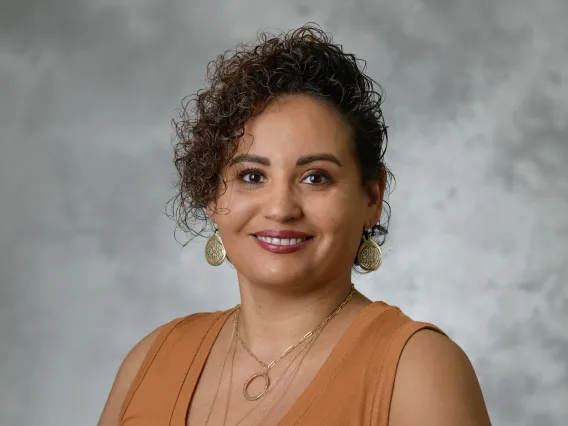Description
(Effective Fall 2019) TIMEFRAME: The program is designed for students interested in the physical, chemical, and biological aspects of the hydrologic cycle, as well as water resources systems, environmental studies, or water policy and the social sciences related to water resources. Students may concentrate in one or a combination of these areas but are expected to acquire fundamental proficiency in all aspects of hydrology and water resources. Research-based study programs are individually planned to meet the student's special interests and professional objectives. Time-to-completion for the Doctor of Philosophy degree in Hydrology is approximately 3.5-5 years (coursework, research, writing the dissertation, all exams) for well-prepared students. All candidates must submit a dissertation or dissertation publication manuscript which has been judged by the student's committee to be eligible for publication in appropriate scientific journals and present the results at two regional, national, or international scientific meetings.
STUDY TOPICS: Active research areas include hydrogeology, hydrogeochemistry, hydrometeorology, hydroclimatology, environmental hydrology, ground-water hydrology, surface water hydrology, vadose zone hydrology, mathematical and statistical methods in hydrology (including stochastic and numerical modeling), water resources sytems, and water resources policy.
PREPARATION: Doctoral applicants should have completed a Master of Science degree with a major in hydrology, water resources, environmental sciences, environmental engineering, or a related field. The HAS one-year MS in hydrogeology will be accepted as a qualification to enter the PhD. (Holders of a Bachelor's degree cannot enter the program directly.)
Students who have completed all of the required undergraduate mathematics and science prerequisites may have a decreased time to completion. NOTE: Students must have completed at least 2 semesters of calculus and have no more than 4 outstanding course deficiencies at the time of matriculation. All students are expected to acquire basic computer programming/coding skills (e.g. Python, MATLAB, Fortran, C++) and complete a field methods/laboratory-field synthesis course sequence. To satisfy the professional development requirement, students are required to attend weekly seminars and colloquia at the beginning of academic residency, officially enroll in the HWRS colloquium (595A) for at least one semester at some time during residency, and make two formal seminar presentations of their dissertation research (at least one oral presentation) at approved regional, national, or international conferences near the end of their academic residency.
FORMAL EXAMINATIONS: Where gaps exist in background knowledge of basic hydrology and water resources (primary areas of surface water hydrology, subsurface hydrology, water quality-chemistry, water resources systems), first-year doctoral students may be required to complete fundamental core courses in preparation for the Doctoral Qualifying Examination. This exam must be passed by the end of the second semester in residence. After all course work for the Major and Minor has been completed (typically by the end of 2 1/2 to 3 years in residence), the Comprehensive Examination process -- which will include multiple Written exams and one Oral exam -- is initiated. When the Comprehensive Exams have been passed, the student becomes an official doctoral degree candidate. A Final Doctoral Oral Examination, or Dissertation Defense, is required in the final semester. See the PHD HWRS Program Guide for full details.
Admission
Apply at the Graduate College website: Click on the Apply Now button for the Program of Study "Hydrology (PHD)." You will be required to upload a variety of documents, including:
- All Applicants:
- Scanned copies of original transcripts (do not send original transcripts with official seal and signature until after you are accepted into the program)
- Names/contact information for three (3) letters of recommendation (referees will submit letters to us online)
- Resume or curriculum vitae
- Statement of research interests
- International Applicants Only: English Proficiency scores also required (details below)
English Proficiency Guidelines: Non-native speakers of English should consult the Graduate College website for information about documenting their proficiency in English. Currently, these minimum scores satisfy the English Proficiency requirement:
- TOEFL (Test of English as a Foreign Language): Minimum score 79 (or 60 on the revised PBT, with no section score lower than 15). Individual MyBest scores must also be dated within 2 years of the enrollment term to be considered valid.
- IELTS (International English Language Testing System): Minimum composite score of 7, with no subject area below a 6
- Pearson PTE Academic: Minimum score of 60
- Graduate English Language Endorsement from the University of Arizona's Center for English as a Second Language (CESL)
- CEPT Full Academic Test at the University of Arizona's Center for English as a Second Language (CESL), minimum total score of 110
- Exemptions by Country from submitting English proficiency scores may be found at the Graduate College website, Requirements by Country
Admission deadlines:
- Domestic Applicants: January 15 for Fall Semester. October 1 for Spring Semester.
- International Applicants: January 15 for Fall Semester. August 1 for Spring Semester.
Financial
Students may be eligible for support through Graduate Assistantships in research and teaching, fee waivers (scholarships), and fellowships. Other funding opportunities are provided by the Graduate College at their Financial Resources website.
Degree Program Reqs
(Effective Fall 2019) The degree requires a minimum of 54 semester units in the Major field of study (HWRS) which includes 36 course units and 18 dissertation units. A complementary Minor field of study (number of units varies) is also required (see Doctoral Minor below). All undergraduate prerequisite courses in math and science should be completed by the end of the first year in residence. See the PHD HWRS Program Guide for full details.
UNDERGRADUATE COURSE PREREQUISITES*
- Physical geology: 1 semester
- College chemistry: 2-semester sequence in inorganic/analytical chemistry
- College physics: 2-semester sequence, one course in mechanics and one course in electricity/magnetism or optics/thermodynamics
- Fluid mechanics: 1 semester
- Mathematics: Calculus 1, calculus 2, vector calculus, and introductory differential equations
- Statistics: 1 semester in statistics or probability theory for the physical sciences or engineering
- *You must have received a grade of C or higher to satisfy these course prerequisite requirements. Grades below C are not recognized the UA Graduate College.
- *Please note that we cannot accept students with more than four undergraduate course deficiencies, and you must have completed at least two semesters of calculus. If you have a course in progress or course/courses to be completed prior to beginning our program, you may note this on the graduate application.
CORE COURSES
No specific core courses are required for doctoral students, although inclusion of one or more in the plan of study may help students prepare for the Doctoral Oral Qualifying Examination (end of second semester/Year 1). Consult with the Director of Graduate Studies-Hydrology for advice.
- HWRS 517A Fundamentals of Water Quality (3 units) Fall
- HWRS 518 Fundamentals in Subsurface Hydrology (3 units) Fall
- HWRS 519 Fundamentals in Surface Hydrology (3 units) Spring
- HWRS 528 Fundamentals: Systems Approach to Hydrologic Modeling (3 units) Fall
HWRS PRIMARY FACULTY ADVANCED ELECTIVES
Advanced elective course work must be approved by the Director of Graduate Studies-Hydrology. The Doctoral Plan of Study must include a minimum of 21 semester units in this category (includes core courses and HWRS Primary Faculty advanced elective courses). (Independent study, professional development enrollment, and field methods are not included in this category.) Refer fo the PHD HWRS Program Guide for a list of approved HWRS Primary Faculty courses.
OTHER ELECTIVES & TRANSFER COURSE WORK
The plan of study should also include 12 additional units from: 1) the HWRS Primary Faculty course list, 2) approved transfer course work, and/or 3) approved graduate-level courses from other UA departments. Refer fo the PHD HWRS Program Guide for a list of pre-approved courses outside the department. Consult with the Director of Graduate Studies-Hydrology regarding potential transfer course work.
FIELD METHODS
- HWRS 513A Field Methods (2 units) Spring
- HWRS 513B Field Synthesis (1 unit) Summer Presession (completed by end of May)
DISSERTATION
- HWRS 920 Dissertation (18 units total) -- delete any excess units from Doctoral Plan of Study prior to submission
PROFESSIONAL DEVELOPMENT
- Enrollment in HWRS 595A Weekly Colloquium, Current Topics in Hydrology and Atmospheric Sciences, for at least one semester is required. These units are not included in the Doctoral Plan of Study.
- Two oral or poster presentations (minimum one oral) of the doctoral dissertation research at approved regional, national, or international conferences is required. No academic credit is awarded for oral or poster presentations.
- Submit an email memo with details to the Director of Graduate Studies-Hydrology (see Program Guide for instructions)
DOCTORAL MINOR
- A doctoral minor area of study (outside the department) that complements and supports the dissertation research is required. The minimum semester units required vary by department, ranging from 9-15 semester units (the average is 12 units).
- Common Minors and their course prefixes include Applied Mathematics (APPL), Arid Lands Resource Science (ARL), Atmospheric Sciences (ATMO), Chemical Engineering (CHEE), Civil Engineering (CE), Computer Science (CS), Geography and Development (GEOG), Geological Engineering (GEN), Geosciences (GEOS), Global Change (GC), Mining Engineering (MNE), Remote Sensing and Spatial Analysis (REM), Renewable Natural Resource Studies (RNR), Soil-Water-Environmental Sciences (ENVS/SWES), and Systems Engineering (SIE). Other Minor areas of study may also be possible.
EXAMINATIONS
- End Year 1/Second Semester: Doctoral Qualifying Examination in the Major -- Contact the HAS Program Coordinator for details
- End Year 1 Doctoral Qualifying Examination for the Minor -- May be optional, so consult Minor Department
- End Year 3 Doctoral Written and Oral Comprehensive Examinations in the Major and Minor -- Initiate after all course work completed
- Year 4-5 Doctoral Final Oral Examination -- Dissertation Defense
DISSERTATION ARCHIVAL
Electronic submission of the doctoral dissertation to the Graduate College and archival with ProQuest UMI is required. The department does not require a copy, although members of the student's faculty committee may request a copy of the manuscript.
------
Be aware of the Graduate College's Steps to Your Degree requirements timeline when planning your examinations (Comprehensive Process and Final Oral/Defense). Allow yourself enough time to make any required revisions of the doctoral dissertation before submission to the Graduate College. The Graduate College's electronic degree audit system includes the following GradPath forms which are required for all Doctor of Philosophy degree candidates. You can complete these forms by logging on to the university's Student UAccess system. You can also refer to the department's PHD HWRS Program Guide and the Dissertation Manuscript Options for instructions and guidance:
- Responsible Conduct of Research Form
- Evaluation of Transfer Credit
-
- Only if using external transfer courses
-
- Doctoral Plan of Study
- Comprehensive Exam Committee Appointment Form
- Announcement of Doctoral Comprehensive Examination
- Results of Oral Comprehensive Examination for Doctoral Candidacy
-
- Submitted by Committee Chair
- Candidacy Fees charged to student bursar's account upon advancement to doctoral candidacy
-
- Verification of Prospectus/Proposal Approval
- Doctoral Dissertation Committee Form
- Announcement of Final Oral Exam (Defense of Dissertation)
-
- Must be submitted and approved at least one week before the date of final examination/defense
-
- Results of Final Oral Exam/Defense
-
- Submitted by Committee Chair
-
- Submission of Final Dissertation Manuscript for Archiving
- Exit Survey



